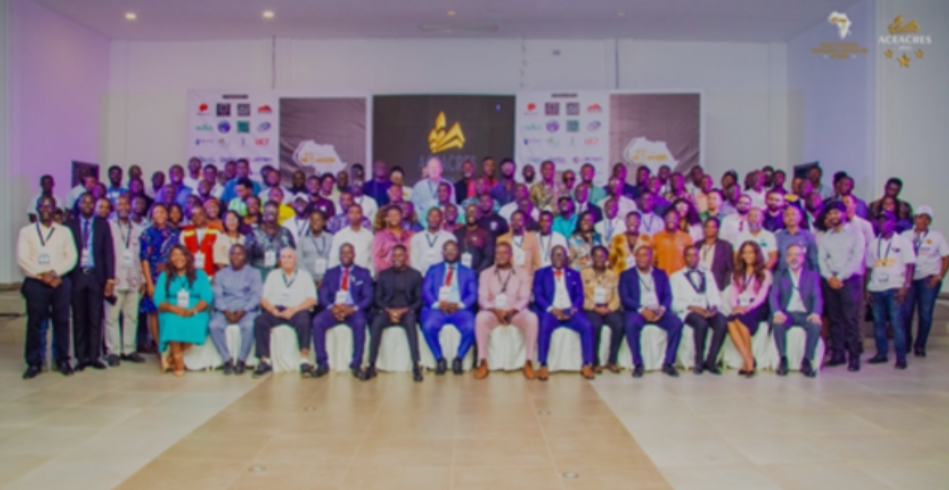In a transformative stride towards digital modernization, Ghana is embarking on the construction of a $300 million data center, poised to be the largest in West Africa. This monumental project is not merely an infrastructure development but a cornerstone of the country’s aspirations to lead the region in digital innovation, economic diversification, and technological resilience.
As nations across the globe race to capitalize on the burgeoning digital economy, Ghana is positioning itself as a formidable player. With this ambitious data center project, the country aims to enhance data storage and processing capabilities, fortify digital ecosystems for businesses, and streamline government operations. This development is expected to yield far-reaching benefits, impacting sectors such as finance, education, health, agriculture, and governance. This article delves deep into the implications, opportunities, and challenges surrounding this landmark initiative.
Why a Data Center Matters
In today’s data-driven world, the importance of robust digital infrastructure cannot be overstated. Data centers serve as the backbone of digital ecosystems, providing secure and reliable environments for storing, processing, and managing data. With the exponential growth of cloud computing, e-commerce, artificial intelligence, and IoT (Internet of Things), the demand for data storage facilities is skyrocketing.
Ghana’s $300 million data center is a response to this pressing need. Once operational, it is expected to not only cater to domestic demands but also position the country as a regional hub for digital services. West Africa, home to over 400 million people, has a significant gap in data infrastructure, and this project aims to bridge that divide. By hosting international and local businesses, the facility could unlock new economic opportunities and attract foreign direct investment (FDI).
Key Features of the Data Center
Incorporating renewable energy sources and energy-efficient systems, the center aligns with Ghana’s commitment to sustainability and climate resilience. The facility will support advanced cloud computing capabilities, enabling businesses to scale their operations seamlessly. Equipped with cutting-edge security protocols, the data center will provide robust protection against cyber threats, ensuring the integrity and confidentiality of stored data. Strategically located to leverage Ghana’s existing fiber-optic networks, the facility will offer high-speed connections to domestic and international clients.
Driving Growth and Innovation
The construction and operation of the data center are expected to generate thousands of jobs. From engineers and IT specialists to construction workers and administrative staff, the project will create opportunities across a broad spectrum of professions. A world-class data center is a magnet for investment. Global tech giants, financial institutions, and multinational corporations are increasingly seeking reliable data storage solutions in Africa. By offering such infrastructure, Ghana stands to attract significant FDI, boosting its economy.
Empowering Local Businesses. Small and medium-sized enterprises (SMEs) are often constrained by limited access to affordable digital services. The data center will enable SMEs to leverage cloud computing, data analytics, and other digital tools, enhancing their competitiveness in both local and global markets. Government operations will benefit immensely from the data center. From digitizing public records to streamlining service delivery, the facility will enhance the efficiency and transparency of governance, fostering trust between the government and its citizens.
Strategic Importance for West Africa
As the largest data center in West Africa, this facility is set to become a regional hub for digital services. Neighboring countries, many of which lack adequate data infrastructure, will likely rely on Ghana’s facility for their digital needs. This not only strengthens Ghana’s geopolitical influence but also fosters regional integration and collaboration.
Moreover, the data center aligns with the African Union’s Agenda 2063, which emphasizes the importance of digital transformation in achieving sustainable development. By leading the charge in digital infrastructure, Ghana sets an example for other African nations, showcasing the transformative potential of technology.
While the prospects are promising, the project is not without challenges. Addressing these risks is crucial to ensure the success and sustainability of the initiative. Data centers are energy-intensive facilities. Ensuring a reliable and sustainable energy supply is paramount. Ghana’s ongoing efforts to expand renewable energy capacity will play a critical role in meeting this demand.
As a hub for sensitive data, the facility will be a target for cyberattacks. Robust cybersecurity measures and continuous monitoring will be essential to safeguard the infrastructure. Operating a high-tech data center requires a skilled workforce. Investing in education and training programs will be vital to building local capacity and reducing reliance on expatriates. A $300 million investment is a significant financial commitment. Ensuring a return on investment (ROI) will depend on the facility’s ability to attract and retain clients, both domestically and internationally.
Building a Digital Future
Ghana’s $300 million data center is more than just a physical structure; it is a symbol of the country’s digital ambitions. By investing in cutting-edge infrastructure, Ghana is laying the foundation for a thriving digital economy that can drive sustainable development for decades to come.
This project is a testament to what can be achieved through visionary leadership, strategic planning, and international collaboration. As the facility takes shape, it will undoubtedly inspire other nations in Africa and beyond to prioritize digital transformation as a cornerstone of their development agendas. The journey to a digital future is just beginning, and Ghana is leading the way.
Written by: Wilson Ronnie Odoom, Independent Contributor.





